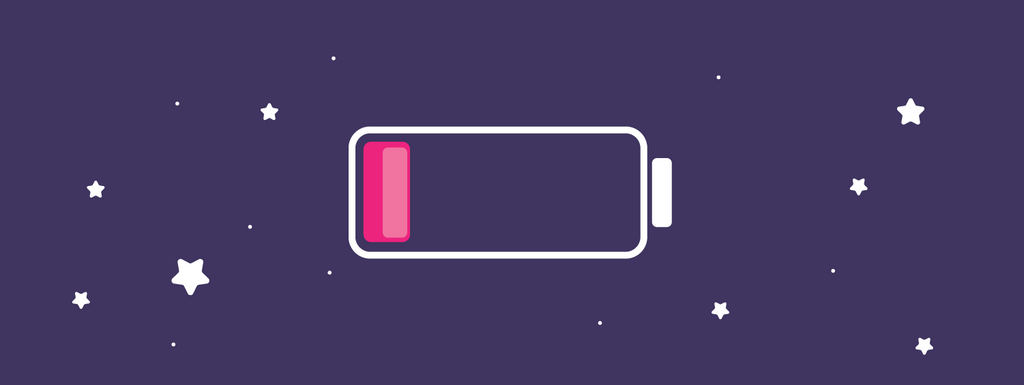The best way to fall asleep- the answer is different for everyone.
Not every sleep aid or sleep tip is going to work for everyone, but these are a few general practices that can help determine what works for you, and eliminate what doesn't.
Alternative sleep aid remedies can help people fall asleep more easily, and melatonin is one of the most popular.
Melatonin is the body’s “sleep hormone” that signals to your body to transition into sleep, and can be taken as a sleep aid supplement.
Melatonin is shown to be effective in helping to treat sleep disorders to disruptions to your circadian rhythm, such as jet lag or irregular work shifts affecting your sleep schedule, and even insomnia. In one study of insomnia patients, melatonin helped increase sleep efficiency and sleep duration.
The average recommended dose for healthy adults is anywhere between 0.5mg to 10mg. The dose should be adjusted for children, elderly people, and people who have health conditions that might affect their sensitivity to melatonin.
Precautions
Elderly people and children should consult their physician before taking melatonin. These groups might also require a different dosage because of their sensitivity to melatonin. People tend to produce less melatonin as they age, so older people may have a different sensitivity to a certain amount.
People with health conditions such as those that affect their blood pressure or cardiac health should consult their physician before taking melatonin in addition to any medication that they are on.
Pregnant people tend to have elevated melatonin levels. There are limited studies on the effects of melatonin on infants and fetal development. Consult with your physician if you are pregnant and are curious about taking melatonin.
If you have any concerns about being able to use melatonin safely, consult your physician first before doing so. Do not take long-term unless approved by your physician.
Taking vitamins
Melatonin isn’t the only thing that supports your sleep cycle. Many vitamins can impact on your body’s ability to function healthfully, including your ability to sleep.
Taking magnesium was associated with improvement in overall sleep quality in a study with insomnia patients. Another study indicated a beneficial effect with several months supplementation of a magnesium- melatonin-vitamin B complex in the treatment of insomnia.
In addition to magnesium, the same study indicated a beneficial effect with several months supplementation of a magnesium- melatonin-vitamin B complex in the treatment of insomnia.
A separate study found that vitamin B12 had a responsive effect when used to treat the sleep-wake schedule disorders in two patients.
Read more about vitamins that can boost sleep.
Fix your sleep hygiene
Even if you’re taking melatonin or vitamins to boost your ability to sleep, sleep hygiene is an important variable that affects your quality of sleep. Practicing good sleep habits can make it easier for your body to fall asleep.
Put away digital devices close to bed.
Avoid using your phone or watching TV late at night.
Blue-light exposure can suppress melatonin production. Using digital screens like your phone at night emits blue light that affects melatonin production in the same way that sunlight does.
Even at night, or in your dark bedroom, digital screens like your phone emit blue-light, which can suppress melatonin production in the same way that sunlight does. Long term, this can disrupt your sleep cycle and make it harder to fall asleep at night.
Sleep in a quiet, cool environment.
A cool room can help you avoid waking up more frequently. Disrupted sleep was correlated with warmer environments, where heat exposure increased wakefulness and decreased slow wave sleep and REM sleep.
REM sleep is widely referred to as the fourth stage of sleep that is essential to maintain your cognitive functions and general wellbeing.
Use comfortable beddings and sheets that can keep you cool.
Exercise in the morning or in the evening, but not too close to bedtime.
Moderate to light exercise might have a positive effect on your ability to sleep. A study even found that the early morning might be the best time to do aerobic exercises to enhance your quality of sleep.
It’s not recommended to exercise vigorously for 3 hours before your bedtime.
Avoid taking stimulants like caffeine or substances like alcohol.
Taking substances like alcohol or caffeine are not good for sleep. Stimulants like caffeine and nicotine can interfere with your ability to sleep. Caffeine prolonged sleep latency, reduced total sleep time and sleep efficiency, and worsened perceived sleep quality. Older people might be more sensitive to caffeine than younger people.
Similarly, nicotine suppressed rapid eye movement REM sleep (deep sleep stages) and was correlated to some sleep disruptions behaviors.
Studies on alcohol point to it contributing to increased sleep disturbances and poor sleep quality, especially in high doses.
Alcohol interferes with the amount of REM-sleep that you get in a night. Even small amounts can have a negative impact on your sleep, making it more likely to suffer poorer quality of sleep when you drink close to bedtime.
If you have underlying conditions that are impacting your ability to sleep, please consult your physician.
General sleep advice can be helpful, but it isn’t intended to treat or cure underlying conditions or sleep disorders.
Some people may require professional help or diagnoses in order to determine the root cause of why they can’t sleep. Consult your physician to help you decide a more appropriate course of action.
